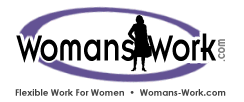|
DOWN WITH THE OBJECTIVE,
LONG LIVE THE POWER STATEMENT!
Copyright
2000 by Rita Fisher, CPRW/Career Change Resumes
Whatís wrong with an objective on a resume? Plenty. But letís begin with
resume writing in general.
If
you havenít in the past, itís now time to consider selling yourself. Through
your resume, I mean.
From
now on, think about your resume as your personal marketing document. Or an ad
designed to SELL YOURSELF. Because thatís exactly what a resume is Ė its
goal is to sell your way in the door and land you an interview.
There
is now question about it - you have to create a compelling ad copy if you want
your resume to stand out from the hundreds of other resumes HR personnel receive
each day. Do you think an objective can help you accomplish that? Think again.
As your own advertising agent, you have to use the most persuasive strategies in
your resume preparation and that means you have to kill your objective. Itís
useless and outdated.
Donít use
an objective. Use a power statement.
Let
me illustrate what I mean by giving examples of both. Here is a typical
objective, one that HR personnel see on resumes all the time:
ďCustomer
Service Representative position allowing me to fully utilize my skills and
attributes and providing professional advancement opportunities.Ē
What did this objective tell me? The above objective communicated to me basically nothing but
for the sake of this case-study here are a few points:
A, The person is looking for a Customer Service position.
(No problem with that.)
B, The individualís priority seems to be his/her
professional advancement within the organization. (Oops, thatís not the way to
treat a potential employer. Thatís not what the company wants to hear. They
want to hear how you will BENEFIT THEM, not yourself.)
C,
The candidate didnít specify skills and attributes thus didnít give any
glimpse into what he/she can do for the company. (Not good because employers
want specifics.)
D,
Self-oriented instead of employer oriented. (Not good at all.)
Letís
translate the same objective into a power statement.
ďAward-winning,
highly accomplished and motivated Customer Service professional with proven
track record of rapport-building, resourceful problem-solving and communication
skills.Ē
What
did this tell me? The power statement communicated to me that:
A, The person is a competent, distinguished
(award-winning) Customer Service professional who has excellent working
knowledge of his/her trade. (Good.)
B,
Has a proven track record of relevant attributes. (Good.)
C, The reader can get a glimpse into how the person could
benefit the company as a result of mentioning specific skills and abilities that
are necessary to do that particular job well. (Very good.)
D,
The power statement is employer-oriented, not focused on self.
Remember,
when employers look at your resume, they read it with one thought and one
thought only in mind: What Can This
Person Do for Us? If you include a self-oriented objective, instead of an
employer-oriented power statement at the top of your resume, you will turn off
the potential employer before they even get a chance to read your entire resume.
The
main difference between the objective and the power statement is that while the
objective is self-serving and self-focused, the power statement is
employee-oriented and results-focused. Employers only care about results Ė the
results you will produce for them on the job whether it will be saving money,
solving a problem or increasing profitability. If you can hint within your power
statement in a short and compelling way how you will benefit the
company, you are on your way to your interview. Go get them!
Rita
Fisher is a Certified Professional Resume Writer, a Career Expert and owner of
Career Change Resumes, a professional resume writing and career marketing firm
that guarantees interviews or will rewrite for free. Rita provides expert help
on presenting your background for the desired career change. FREE e-zine and
FREE power words.
E-mail:
resumes@reliable-net.net,
Website: http://www.CareerChangeResumes.com
|
